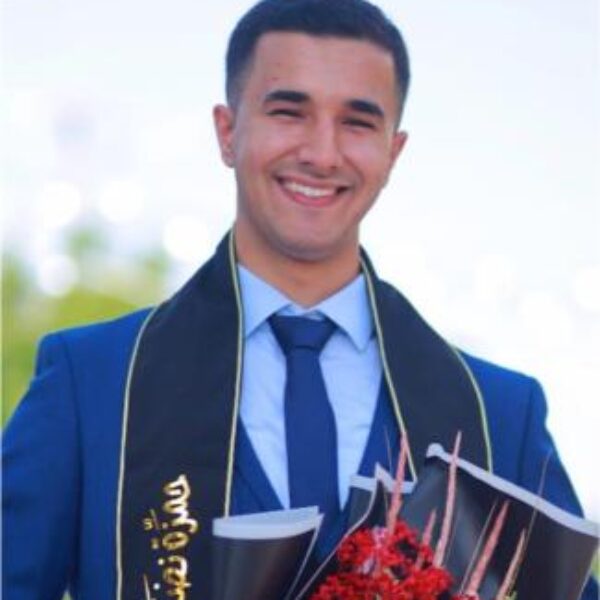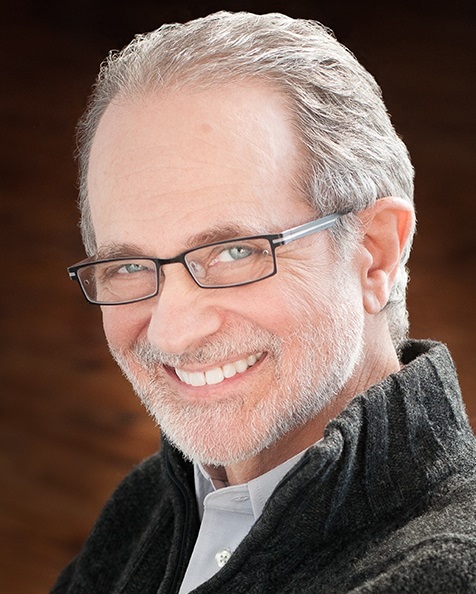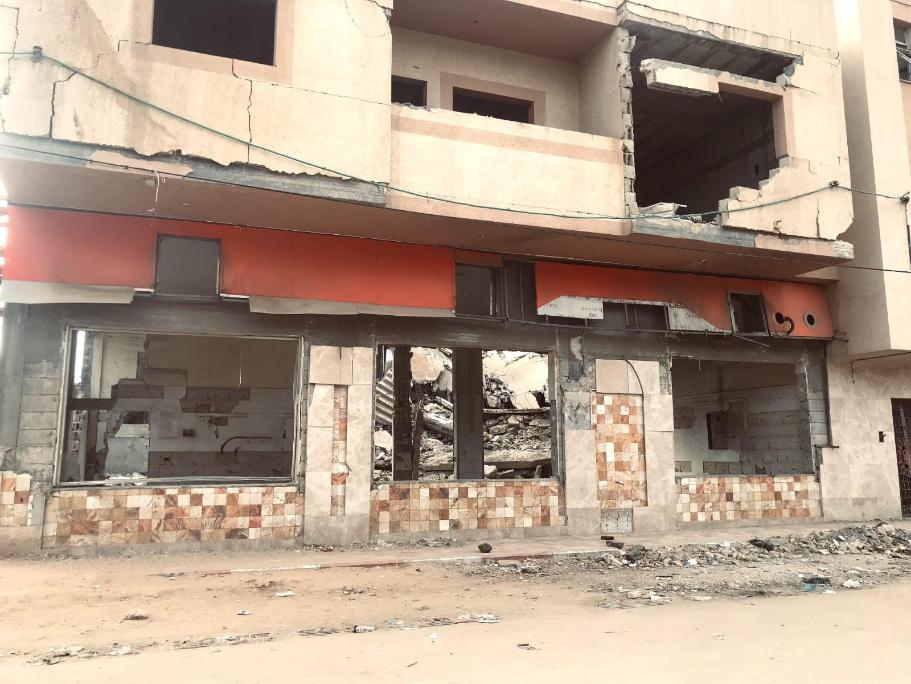In besieged Gaza, where the sound of explosions and gunfire are sadly too familiar, Eid al-Fitr, which marks the end of Ramadan and was celebrated this year on April 11, was a fragile ray of light piercing the darkness. The narrow streets were lined with rubble and debris, the air heavy with the scent of dust and despair. Amid the chaos and devastation, we Palestinians clung to our faith and traditions, finding moments of solace and joy in the midst of adversity.
My cousin looked for happiness during Eid
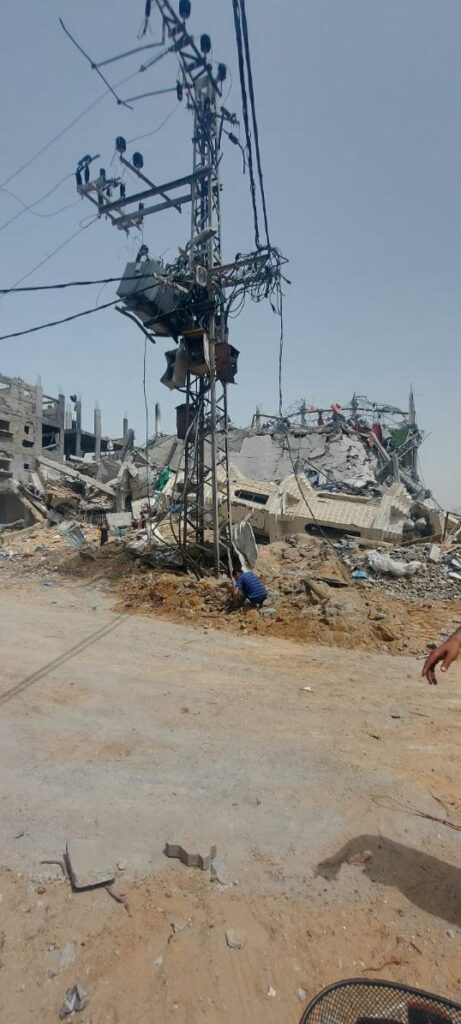
My 10-year-old cousin, Mahmoud, has known nothing but war for as long as he can remember. The sounds of explosions, the wails of sirens, and the sight of buildings reduced to rubble are all too familiar to him. Yet he clings to his faith from his tent in Rafah and hopes for a brighter tomorrow.
As Eid al-Fitr approached, Mahmoud found himself longing for a moment of peace and joy amidst the turmoil of war. He yearned for simple pleasures that others take for granted — the joy of waking up to a peaceful morning, the laughter of children playing in the streets, the warm embrace of loved ones gathered around a festive table. In Gaza, such moments are rare and fleeting, overshadowed as they are by the constant threat of violence and destruction.
On the morning of Eid, Mahmoud put on his worn-out clothes (he had nothing new to wear) and, with a heavy heart, made his way down rubble-strewn streets toward what had been the neighborhood mosque. There, he found men standing near the ruins of the Al-Farooq Mosque praying in unison to mark the start of Eid. Their faces were weary; their eyes reflected the weight of their collective suffering. Mahmoud joined the congregation in prayer, seeking solace and strength from the familiar words of supplication.
After prayer, he returned to his tent, heartbroken. His family gathered to share a humble meal of canned beans and tea, their voices mingling in conversation and fake laughter that reflected the difficulty of living in tents. As Mahmoud sat quietly in a corner, his thoughts drifted to memories of happier times before the war had torn everything apart. He thought of his friends and loved ones, who had been taken from him too soon, and his siblings who had been scattered to the winds by the conflict.
As the day wore on, Mahmoud found himself drawn to a group of children playing in the ruins of a bombed-out building. Their faces were lit with joy and innocence; their laughter was a poignant reminder of the resilience of youth in the face of adversity. One little girl, her hair adorned with colorful ribbons, caught Mahmoud’s eye as she beckoned him to join their game.
Mahmoud hesitated for a moment, but as he watched the children frolic and play, he felt a glimmer of hope spark in his soul. In that moment, surrounded by the sounds of laughter and the warmth of community, he felt a sense of peace descend upon him like a blessing.
“When I see children and family celebrating Eid, and parents giving children Adiay (a small amount of money) to make them happy, it reminds me of my childhood,” he told me, adding that “we are all trying to be happy, but it’s challenging. The war made me grow up quickly and crushed my happiness.” Yet Mahmoud knew that as long as there was faith in his heart and resilience in his spirit, he would endure.
My missing joy
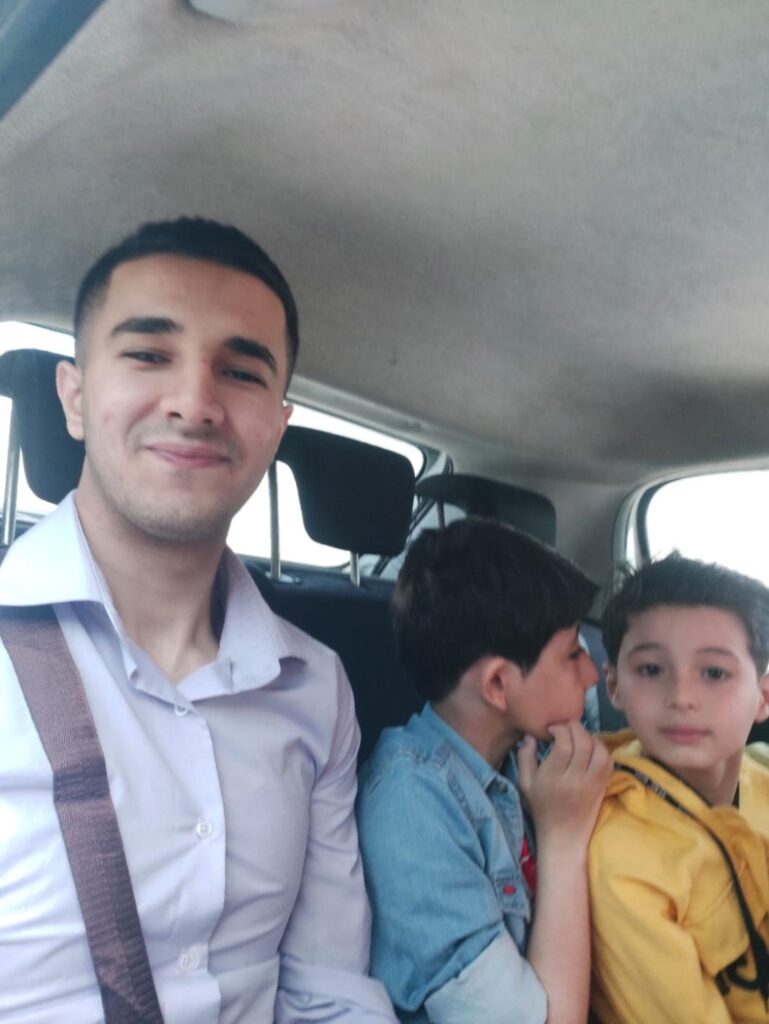
I have stopped trying to feel the way I used to feel on Eid al-Fitr. I knew the nightmare of war was not going to disappear, even on “happy Eid.” My eyes would not smile like they used to on Eid. In the wake of more than 33,700 martyrs, 76,400 wounded, and 2 million displaced Gazans, this year’s Eid al-Fitr was unlike any other.
When I was a child, I used to eagerly await the morning of Eid. The day before Eid, I remember buying new clothes to wear on that special day. Before I went to bed, I would ask my mother to iron them and hang them in the closet. When I woke up on Eid morning, I would feel a warm sense of peace and happiness as my eyes caught sight of my new clothes. Those feelings of joy hold a special place in my heart.
I used to ask my mother for a small amount of money as an Eid gift. Parents usually give their children such gifts to make them happy. During Eid, my family would gather in the kitchen as my mother prepared delicious Eid cakes. When we tasted them, the joy of Eid and the warmth of our family gatherings filled our hearts.
In years past, I would wake up early, put on my new clothes and favorite musky perfume (which always makes me smile warmly), and go to the mosque at 6 a.m. to perform Eid prayers. Following prayer, the worshippers would greet and hug their loved ones and friends and then head home to sit with their families, visit relatives, and eat cake. The streets would be full of happy children spending their coins on swings, horse rides, and holiday games. To me, this is the most beautiful part of Eid.
This year I did not make any good Eid memories. Eid no longer brings joy, but only fear and terror.
My parents’ prediction and hope for Eid
The day before Eid my mother told me, with sorrow in her voice, “Tomorrow will be Eid al-Fitr for Muslims, but many Gazans will have a special Eid in heaven. We hope for a lasting ceasefire so the remaining children of Gaza can be happy on Eid.”
At the same time, my father told me, with a heartbroken voice, that he hoped the war would end soon and we could return home. He further added that he wishes to celebrate upcoming Eids by wearing new clothes and gathering with his extended family, friends, and loved ones.
Eid usually brings peace, joy, and hope to Palestinians. This year the Israeli war made it another day of destruction, killing, and displacement. As I write this story, another massive explosion rocks the neighborhood.

